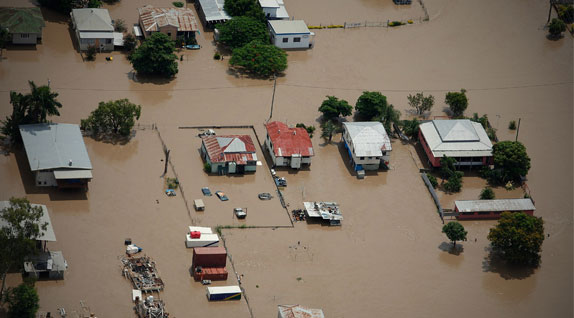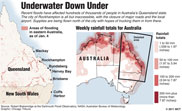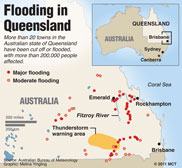 Patrick Hamilton/AFP/Getty Images
Patrick Hamilton/AFP/Getty Images
World News Desk
Learn the why behind the headlines.
Subscribe to the Real Truth for FREE news and analysis.
Subscribe NowAccording to the United Nations Food and Agriculture Organization (FAO), world food prices for basic commodities—wheat, corn, dairy products, meat and sugar—hit record highs in 2010, and continue to rise.
The FAO’s food price index rose from 213.5 points in June 2008 to 214.7 in December 2010. The Gulf News wrote, “In 2010, low-income for deficit countries’ import requirements were around 89 million tonnes of cereals…Of this, African countries imported 43 million and Asian countries 44 million tonnes.”
The Independent reported, “Global food price has risen for the sixth month in succession. Wheat has almost doubled since June, sugar is at a 30-year high, and pork is up by a quarter since the beginning of 2010.”

Rising oil and fuel costs, increasing use of corn-based biofuels, severe weather, and environmental conditions (drought, heat, wildfires, extensive rainfall, floods) have contributed to soaring food prices around the world.
The Chinese regions of Pucheng and Kuandian, recorded 25.61 inches of rain in June and 34.57 inches in August, respectively, which greatly affected farmlands. North Korea, another severely affected country, is expected to have a food shortage of nearly half a million tons, despite a 3 percent increase in staple food production.

Meanwhile, Australia experienced heavy rains last December. Three cities in the state of Queensland—Rockhampton, Brisbane and Mackay—saw at least three inches of rainfall, which affected wheat and sugar production.
Elsewhere, Russia experienced its worst drought in 50 years, with temperatures averaging 11 degrees Fahrenheit above the normal July climate. At the same time, rainfall was below average, creating dry conditions that sparked wildfires later that month.
Having suffered a summer drought, Ukraine (as did Russia) limited the export of wheat. In 2009, Ukraine harvested 50.7 million tons; the nation harvested 7.7 million tons less the following year.
In addition, Russia suffered severe summer temperatures in 2010, with Saint Petersburg seeing an average of nearly 12 degrees above normal. Moscow, the nation’s capital, set a temperature record of 92 F. The drought and extreme summer heat destroyed 22 million acres of planted land.
The UN fears the current crisis could lead to food riots, increased tensions between competing nations, continued price inflation, and growing hunger, particularly among the world’s poorest populations.
- Real Truth Magazine Articles
- INTERNATIONAL
 Can Rich Nations Feed the World?
Can Rich Nations Feed the World?
Other Related Items:
More on Related Topics:
- Its Economy and Infrastructure Battered, Can Lebanon Afford a War with Israel?
- 7 Money-saving Tips for the Grocery Store
- Scammers Are Swiping Billions from Americans Every Year. Worse, Most Crooks Are Getting Away With It
- Fight for Control of Yemen’s Banks Between Rebels, Government Threatens to Further Wreck Economy


